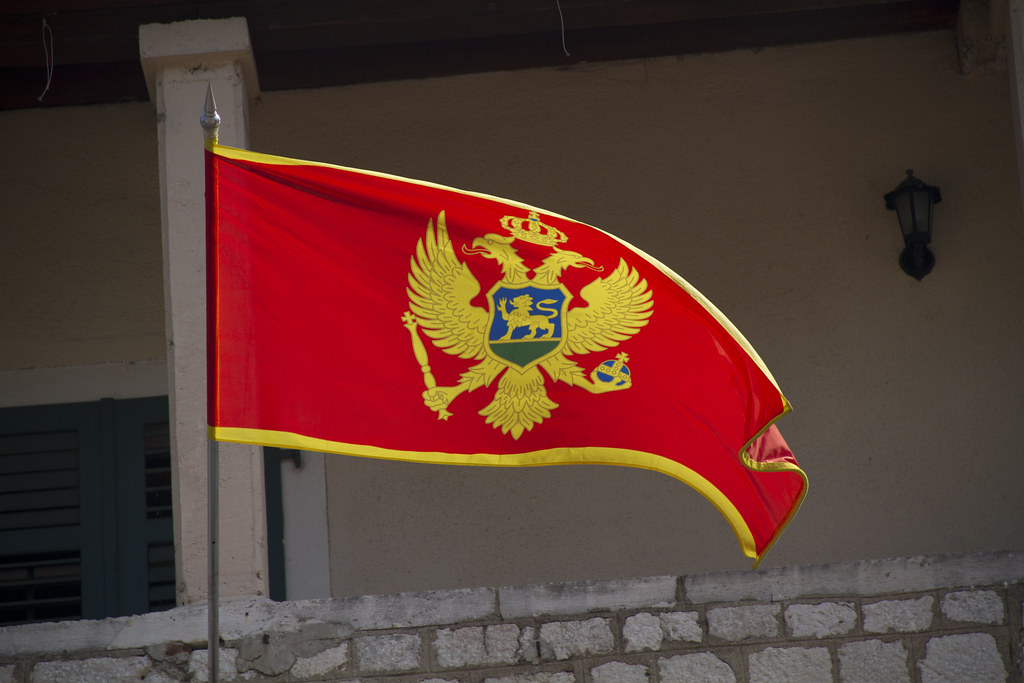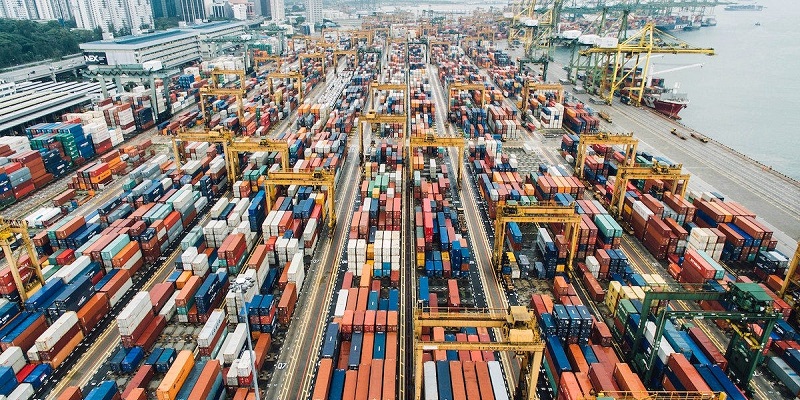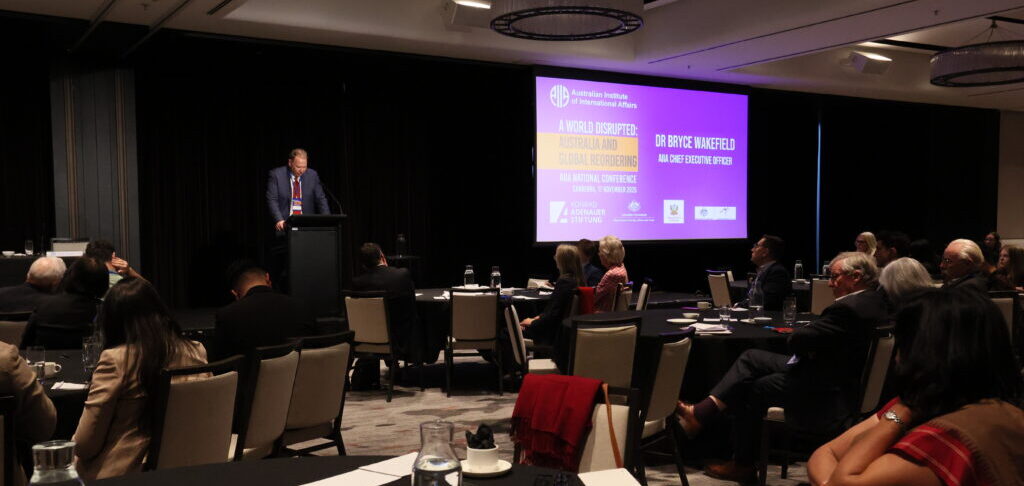This week in Australian foreign Affairs: Australia reaffirmed support for Ukraine on the war’s third anniversary, imposing new sanctions on Russian entities; Defence Minister Marles addressed concerns over Chinese warships and reaffirmed ADF maritime capabilities; Pat Conroy heads to Vanuatu for meeting with new Government; and more.
Prime Minister Anthony Albanese, Deputy Prime Minister Richard Marles and Foreign Minister Penny Wong released a media release stating Australia’s ongoing support for Ukraine on the third anniversary of the Russian Invasion of the country. Australia imposed further sanctions on Russia including 70 travel bans and financial sanctions on 79 entities. The sanctions target individuals propping up Russia’s illegal administrations in eastern Ukraine and Crimea, and individuals responsible for conflict-related sexual violence and the forced deportation of Ukrainian children. The sanctions also target persons and entities involved in deepening military cooperation between Russia and North Korea. The release stressed that the deepening of Russia-North Korea military cooperation is a dangerous expansion of Russia’s war, with serious consequences for European and Indo-Pacific security.
In a doorstop interview, Defence Minister Richard Marles urged Australians to “take a deep breath” when asked about the Australian Defence Force’s capabilities in the wake of Chinese Warships entering Australian waters. When asked if the warships exposed inadequacies in the ADF’s ability to monitor and track Marles had a simple answer; “No.” expanding, he added, “It’s been an example of how we’ve been able to surveil this Task Group in an unprecedented way.” On the subject of China’s live fire exercises and their failure to provide adequate notification he stated “the notification, in our view, that was provided by China, whilst being compliant with international law was not up to scratch.” explaining that “t gave rise to the very disconcerting circumstance for the commercial pilots on Friday of having to divert their planes mid-flight. And that’s really not acceptable.” He also added that Australia usually provides “12‑24, in some cases, 48 hours’ notice, so that any approaching commercial aircraft, or for that matter ships, are able to make sure that they’re well away from whatever we’re doing.” Asked further about the ADF’s ability to handle larger, more frequent task group deployments from China Marles responded “We are confident about the capabilities of the Australian Defence Force (…) what we have today is a capable Defence Force, and I am confident that we are able to manage events of this kind.”
In the same interview, Defence Minister Richard Marles was asked about the US joining Russia in voting against condemning the Russian Invasion of Ukraine. He first reaffirmed Australia’s position “Russia is the aggressor here. We stand with Ukraine. That’s why we’ve given a billion and a half dollars’ worth of support to Ukraine. That’s why we’ve got Australians training recruits into the Ukrainian Armed Forces as we speak. And we will continue to stand with Ukraine for as long as it takes for them to resolve this conflict on their terms.” when asked if Australia would be able to buck the trend of the US “throwing Europe and Ukraine under the bus” Marles said “I had a really good meeting (…) with Secretary Hegseth and I feel very confident about the commitment of the United States to the alliance with Australia, but more broadly to the region.” going on to say “What’s in Australia’s interest is to have an ongoing American presence in the Indo‑Pacific. And everything I have heard from Secretary of Defence Hegseth only affirms my sense of confidence about the fact that that’s what we will see under the Trump Administration.”
Prime Minister Anthony Albanese launched the Roadmap for Australia’s Economic Engagement with India, saying that “There is no greater time to engage economically with India than now.” The roadmap identifies four key sectors of significant potential: clean energy, education and skills, agribusiness and tourism and is intended to “keep nurturing and improving the bond” between Australian and India. The Roadmap begins by launching a new Australia-India Trade and Investment Accelerator Fund, as well as expanding the Maitri Grants program.
Prime Minister Anthony Albanese and Minister for Trade and Tourism Don Farrell have ratified the upgraded ASEAN-Australia-New Zealand Free Trade Area (AANZFTA). The Agreement is aimed at helping small businesses benefit from trade in Southeast Asia, streamlining trade procedures for importers and exporters and levelling the playing field for Australian service providers and investors in education, mining and engineering, and finance sectors as well as protecting e-commerce confidentiality, improved labour standards, environmental protections, and the promotion women’s economic empowerment. In a release, Farrell’s office states, “Nearly half a million Australian jobs are linked to trade with Southeast Asia, and we expect this number to grow” The upgrade builds on the tariff-free or preferential access Australia has on 98 per cent of all tariff lines for Australian exports under AANZFTA. The upgrade will enter into force in 60 days.
Minister for International Development and the Pacific Pat Conroy has travelled to Vanuatu to meet with Prime Minister Jotham Napat and other senior ministers in the new Government of Vanuatu. On the visit, Conroy stated “I look forward to discussing the deep ties between the people of Australia and Vanuatu, and our enduring commitment to strengthen our close economic, development and security partnership.” reiterating that Australia’s partnership with Vanuatu is “grounded in mutual respect and a shared vision for a peaceful and prosperous region.” The visit comes two months after a catastrophic earthquake devastated parts of the Archipelago nation. Conroy said that he plans to discuss how Australia can continue to support ongoing response efforts, saying that “Recovery will take time, but Australia will be with Vanuatu each step of the way.”
Jarrah Turner is an Assistant Editor at Australian Outlook and a Graduate of International Relations and German Language from Macquarie University.
This article is published under a Creative Commons License and may be republished with attribution.




